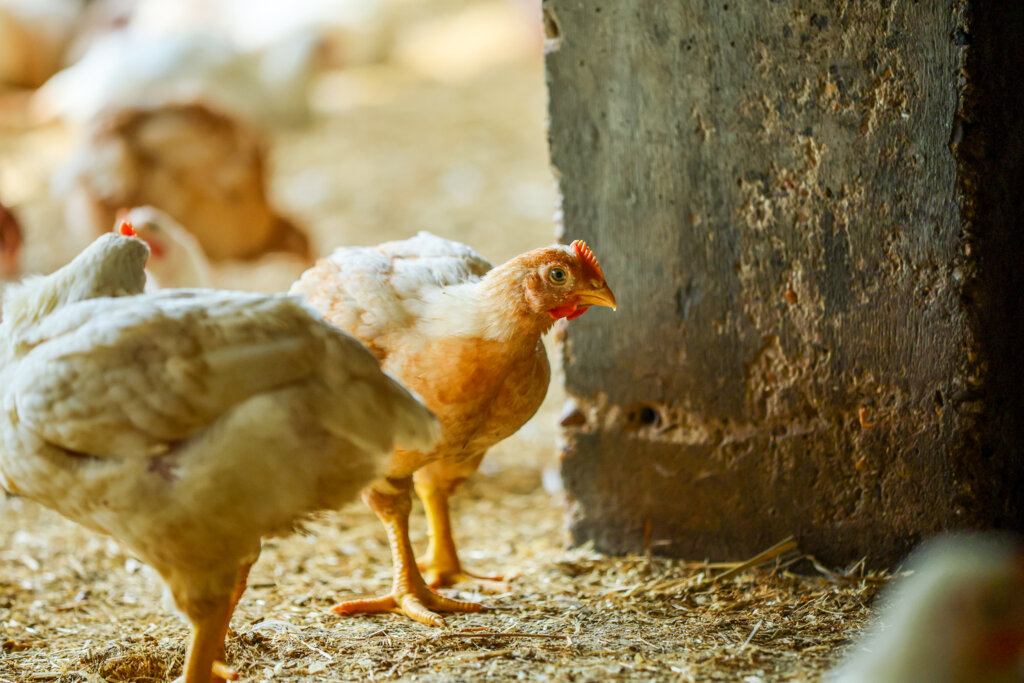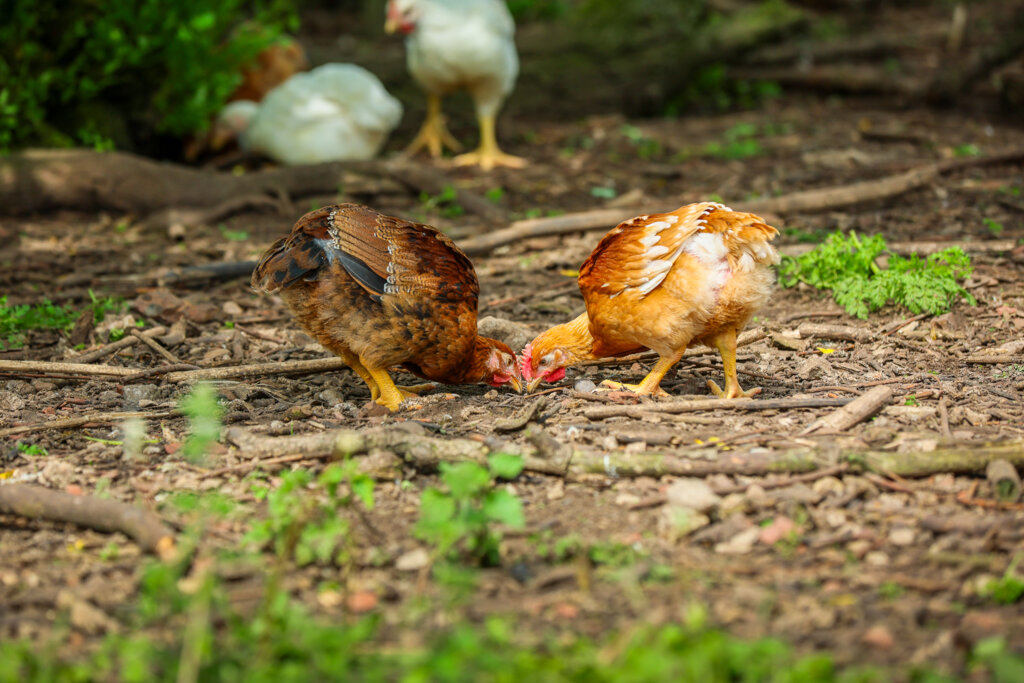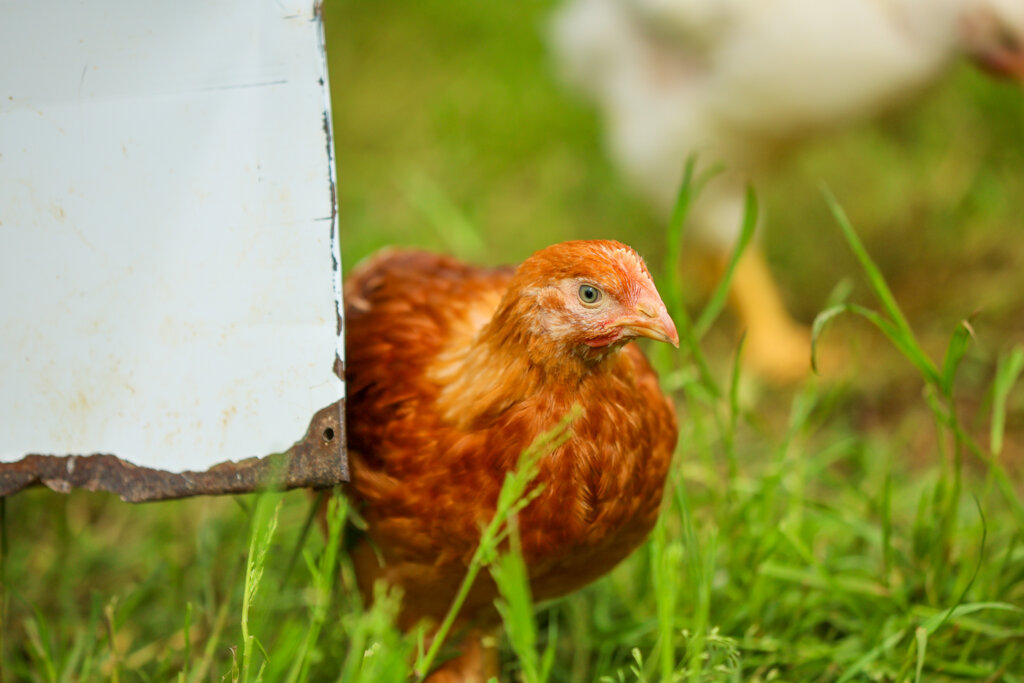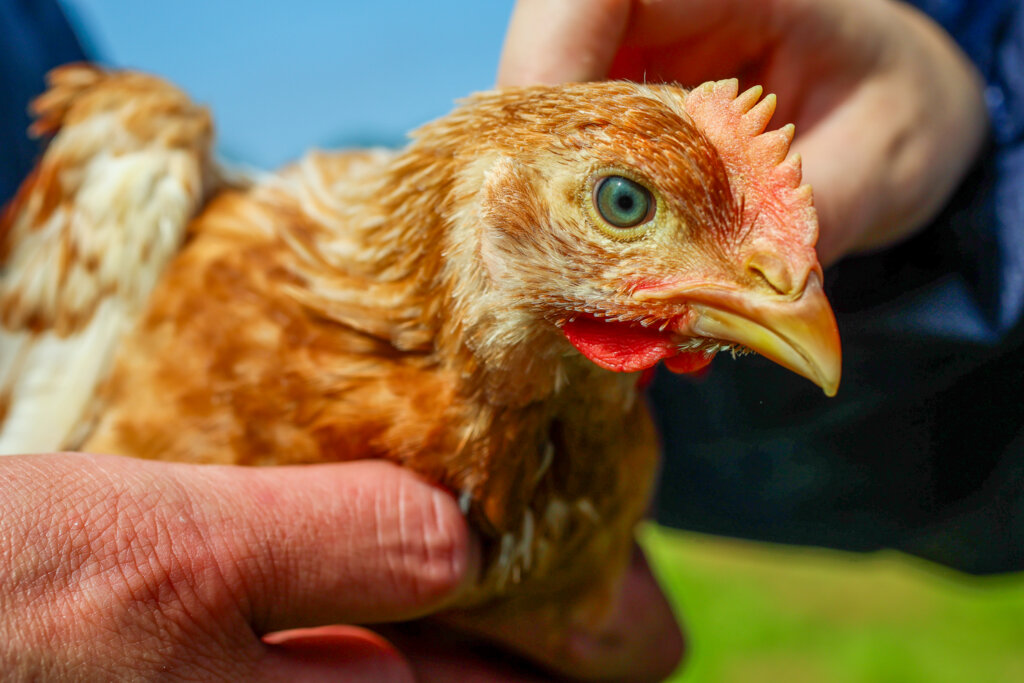Setting up a home for chickens
- A cosy coop will keep your chickens warm and dry in winter and cool in the summer. Make sure it comes with perches and a cosy nesting box.
- Close your coop at night once your chickens are roosting inside.
- Give your chickens a spacious run so they can scratch about for bugs (be sure it’s fox proof!) and keep a close eye on them if you let them out of their run.

Did you know?
Chickens can run up to 14.5km an hour!
Getting food and water ready
- Feed them special chicken food labelled ‘layers pellets’ in pet shops and give them access to clean, fresh water.
- Chickens don’t have teeth, so they eat grit to break down food AFTER they’ve eaten it. Weird, right? Feed them poultry grit, made especially for chickens.
- Offer plants like turnip greens, kale, and squash as healthy treats. Just remember not to feed kitchen scraps as that can spread illness and is actually against the law!

Encouraging their behaviour
- Chickens love ‘dustbathing’ in soil to clean their feathers! Give them a deep container of loose, dry soil to roll around in.
- They’re super curious creatures, so give them toys to explore. You could hang a head of lettuce for them to peck at, or a xylophone to play. Add mirrors so they can gaze at their im-peck-able reflections too.
- Offer your chickens log piles, straw bales and tree stumps, where they can perch.

Keeping them company
- Chickens need chums, so keep at least three who get on already. A bit of squabbling is normal, but introducing strange hens can lead to bullying.
-
Hens are female laying chickens and make popular pets. If you decide to keep a single cockerel or a rooster (male chicken) with your hens, consider adopting one from the RSPCA. Just check with your neighbours first. Cockerels can be noisy!

Did you know?
Adult hens tend to lay an egg every 24 to 27 hours, but without a male chicken and warmth they won’t hatch into chicks. Collect your eggs every day and keep them in the fridge. These eggs won’t ever hatch and are safe to eat.
Chicken health
- Chickens usually love to explore. If they seem inactive, hunched up or try to hide away, bring them to us vets (choose a vet with experience of chickens).
-
Worm your chickens and keep an eye out for lice and mites between their feathers or in their house. If you spot any, ask someone at your pet shop for the right treatment.

